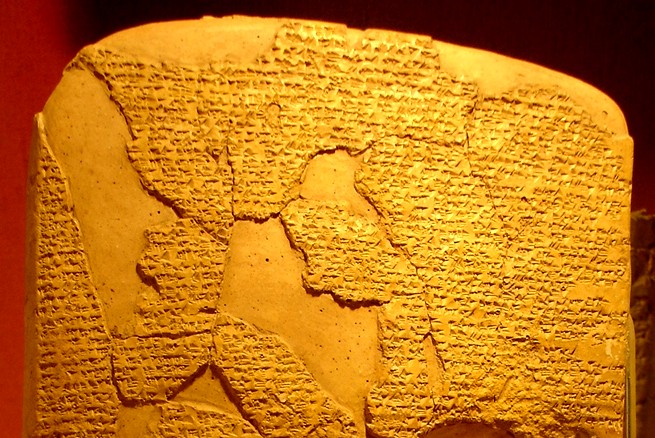5 Sept. Solomon gains many enemies before his death
“The LORD caused Hadad the Edomite, a member of the family of the king of Edom, to become Solomon’s enemy. Earlier, David had defeated Edom… Joab and all the Israelites stayed in Edom for sixth months and killed every male in Edom. At that time Hadad was only a young boy, so he ran away to Egypt with some of his father’s officers…”
“While he was in Egypt, Hadad heard that David had died and that Joab, the commander of the army, was dead also. So Hadad said to the king, ‘Let me go; I will return to my own country.’…”
“God also caused another man to be Solomon’s enemy – Rezon son of Eliada. Rezon had run away from his master, Hadadezer king of Zobah. After David defeated the army of Zobah, Rezon gathered some men and became the leader of a small army. They went to Damascus and settled there, and Rezon became king of Damascus.”
“Rezon ruled Aram [the kingdom of Damascus], and he hated Israel. So he was an enemy of Israel all the time Solomon was alive. Both Rezon and Hadad made trouble for Israel.”
“Jeroboam son of Nebat was one of Solomon’s officers. He was an Ephraimite from the town of Zeredah, and he was the son of a widow named Zeruah… This is the story of how Jeroboam turned against the king.”
“Solomon was filling in the land and repairing the wall of Jerusalem, the city of David, his father. Jeroboam was a capable man, and Solomon saw that this young man was a good worker. So Solomon put him over all the workers from the tribes of Ephraim and Manasseh.”
“One day as Jeroboam was leaving Jerusalem, Abijah, the prophet from Shiloh, who was wearing a new coat, met him on the road. The two men were alone out in the country, Abijah took his new coat and tore it into twelve pieces. Then he said to Jeroboam, ‘Take ten pieces of this coat for yourself. The LORD, the God of Israel, says: “I will tear the kingdom away from Solomon and give you ten tribes. But I will allow him to control one tribe… I will do this because Solomon has stopped following me and has worshipped the Sidonian god Ashtoreth, the Moabite god Chemosh and the Ammonite god Molech”…’”
“’”But I will not take all the kingdom away from Solomon. I will let him rule all his life… But I will take the kingdom away from his son, and I will allow you to rule over the ten tribes… You will rule over all of Israel, and I will always be with you if you do what I say is right… If you obey my laws and commands as David did, I will be with you.”…’”
“Solomon tried to kill Jeroboam, but he ran away to Egypt, to Shishak king of Egypt, where he stayed until Solomon died.”
(1 Kings 11:14-40)

The Battle of Kadesh in c.939BC is one of the great turning points in the history of the Middle East that isn’t recorded in the Bible. But it had a tremendous influence on events that took place shortly afterwards in Israel.
During the reign of King Solomon, Israel’s most important ally was Egypt. It was in Egypt’s interest to support Solomon (and their mutual ally, King Hiram of Tyre) in order to defend the major trade route (the Via Maris) that went north from Egypt via the coastal plain of Palestine (the Plain of Sharon) and across the Vale of Jezreel to their great trading partners in the lowlands of Mesopotamia.
Towards the end of Solomon’s reign, this important trading route was threatened by the southward expansion of the Hittite empire based on the Anatolian Plateau in modern-day Turkey. In the fifth year of his reign, Pharaoh Ramesses II decided to take decisive action against the Hittites. He marched north along the Plain of Sharon with thousands of soldiers and chariots, and moved inland to confront the Hittites at Kadesh, north of Damascus.
Scenes depicting the Battle of Kadesh can still be seen today decorating the walls inside the Temple of Ramesses at Abu Simbel. Unfortunately for the Egyptians (and for their allies), the Hittites stood firm, and the indecisive outcome of the battle was confirmed some fifteen years later by the Treaty of Kadesh - the oldest known treaty of which we still have a copy today.
The outcome was particularly devastating for Israel, as news of the near defeat of its superpower ally - Egypt - soon spread among Israel’s neighbours. If Egypt couldn’t stop the Hittites on the northern border of its empire, then it was unlikely to support its ally Solomon if his neighbours rebelled against Israel’s dominance.
King Hadad of Edom was the first to rebel against paying tribute to King Solomon (see 1 Kings 11:14-22). He was followed soon afterwards by King Rezon of Damascus (see 1 Kings 11:23-25).
To make matters worse, Jeroboam - one of Solomon’s officials - also turned against him. Ahijah, a prophet from Shiloh, told Jeroboam that - because Solomon had turned away from the LORD and had worshipped Ashtoreth, Chemosh and Molech - Solomon’s son Rehoboam would only rule over two of the twelve tribes of Israel (see 1 Kings 11:29-39).
Solomon tried to kill Jeroboam, but he escaped to Egypt to the court of the Egyptian Pharaoh the Bible calls by his nickname ‘Shishak’ – ‘the plunderer’ (Pharaoh Ramesses II).
The photo shows the Treaty of Kadesh recorded on a cuneiform tablet at the Archaeology Museum in Istanbul.
You can read more about the treaty @ https://thebiblejourney.org/biblejourney2/31-the-golden-age-of-israel-under-king-solomon/solomon-dies-and-the-kingdom-is-divided/
